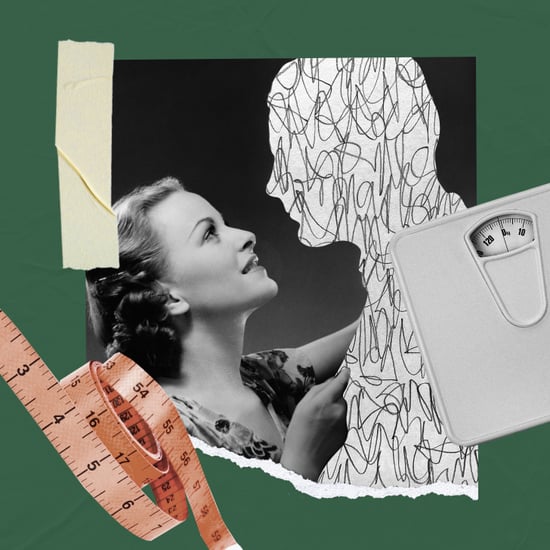Overeating on Keto
Overeating on Keto? Yes, It Happens — 2 RDs Explain Why and How to Stop

If you've ever heard anything about keto, or even tried it yourself, you probably know that one of the big benefits it touts is that feeling of fullness. That's thanks to the fact that it's such a fat-heavy diet, and fats are extremely filling, registered dietitian Kristin Kirkpatrick from the Cleveland Clinic's Wellness Institute told POPSUGAR.
It's still possible to find yourself overeating on keto, though, especially if you've had those habits in the past. Knowing that the diet is supposed to keep you fuller and "fix" that problem can make it feel even worse. Getting past overeating is about finding what caused it in the first place.
Overeating Is Mental
"Overeating is more of a mentality," said registered dietitian Michele Fumagalli from the Northwestern Medicine Running Clinic. If you're continuing to overeat on a high-fat, low-carb diet, she said, it could be that your body is simply used to overeating. Even more importantly, you might already be in the habit of ignoring your natural feelings of hunger or fullness.
When it comes to overeating, Kristin said, "I often tell my patients that I can help them fix the food they're eating, but weight-loss success or maintenance isn't just about what you put into your mouth." Overeating has a lot to do with other factors in your life: where you live and work, your age, your family support, and even your genetics, for a start. If a diet high in satiating fats isn't fixing that overeating habit, it probably has less to do with your stomach and more to do with those other factors.
You Might Still Have Carb or Sugar Cravings
On the keto diet, only five to 10 percent of your macronutrient intake should be carbs. "The whole concept behind keto," Kristin explained, "is that you deplete glucose and glycogen stores, and when all the preferred fuel is gone, you burn fat and release ketone bodies." Pushing the limits of that carb boundary can put you at risk for a binge. "Once you 'feed' yourself even small amounts of carbohydrates from any source, your body will kick out of ketosis and go back to carbs, its preferred fuel," Kristin said.
This sounds biological, but both dietitians agreed that it's still related to your mindset. "There's a diet cycle," Michele told POPSUGAR. "We go on a diet, like keto, and we deprive ourselves of foods that we love or yearn for." Maybe we get cravings or simply miss eating the food; either way, at some point, we finally give in. And once you start eating that food you've been longing for, it feels almost impossible to stop. On top of that, Kristin said, if you know you're already out of ketosis, "maybe the feeling is that you might as well enjoy the binge while you're out of it."
How Do I Stop Overeating on Keto?
If you're struggling with overeating on keto, Kristin offered two tips.
- Track your food. She recommended using a keto-friendly app. There are lots, but MyFitnessPal or KetoDiet are good places to start. Keeping track of your food on an app will hold you accountable and emphasise it when you go over your carb or protein limits, she said.
- Journaling about overeating. Since overeating is so mental, your binges might be stemming from emotions outside of your feelings of hunger or fullness. Jot down what you're feeling when you're overeating: boredom or stress, in particular, might be causing a binge. You might even be tempted to overeat, "because the keto rumour is that you can eat fat all day, every day, and lose weight," Kristin said. Sorting through the mental urges and emotions behind your overeating can help you identify the real issue and move past those binges.
"Keto is a hard diet to make a lifestyle," Michele said. "It's all or nothing." To conquer your overeating urges from both a mental and physical standpoint, you'll have to address the cravings and emotions that are pushing them. It's hard but definitely possible, and it's a process that will help heal your relationship with food, no matter which diet you choose.








